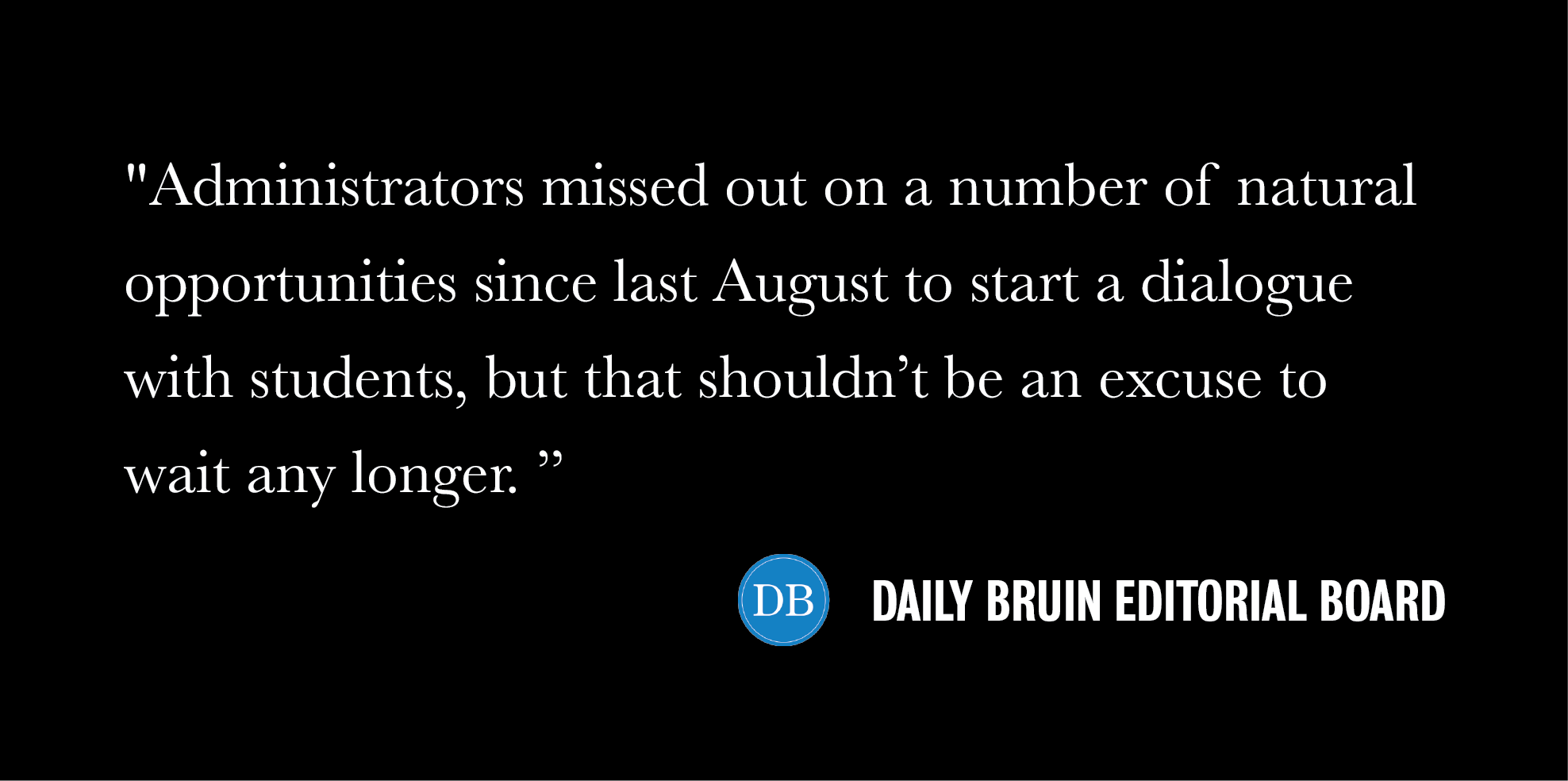Editorial: UCLA administrators should increase communication with students

By Editorial Board
Feb. 12, 2017 6:59 p.m.
Student activism is entering a renaissance on campuses nationwide. For now, the outrage is pointed squarely at President Donald Trump’s administration, but college administrators shouldn’t think they’ll get off scot-free.
At UCLA in particular, vice chancellors have a communication problem. They are mostly hidden and tend not to communicate directly with the broader student body. This board has called for more interaction between students and administrators in the past – most recently six months ago – but that has yet to happen.
Plenty has happened in that time: The University of California Regents passed a tuition hike; a professor who was accused of sexual harassment returned to the classroom; construction projects disrupted student life, continuing a trend of controversial capital projects; undocumented students continue to face threats to their safety; and mental health funding and space constraints for Counseling and Psychological Services continue to cause great concerns.
And apart from Chancellor Gene Block’s oft-maligned office hour and outreach events from Jerry Kang, vice chancellor for equity, diversity and inclusion, there has been practically no dialogue between the administration and the average UCLA student.
The administration’s current trend of ignoring this communication problem in hopes it might disappear is not an adequate solution. Students deserve to be heard and should be encouraged to engage in dialogue with more than just Block and Kang – they only handle so many aspects of the university. And the other members of the administration need to be the ones to meet this need.
When the board asked Block about the feasibility of holding town hall meetings rather than his regular office hours, he said he thinks such events might reach more students, but can also fuel emotions over recent political events and are difficult to moderate.
We agree town halls would be a tough format for Block or any of the vice chancellors to organize, but that’s just one suggestion. What’s more, if students have emotionally charged concerns that prompt them to speak out, administrators’ first reaction shouldn’t be to silence them or avoid hearing about them. Other administrators – those in charge of student affairs, capital projects or academics, for example – could start small by holding office hours themselves. That’s a step in the right direction.
The solution, however, cannot simply be discussions with small groups of campus leaders, like the undergraduate student association. Student leaders often face similar communication problems with average students.
Of course, many UCLA students won’t automatically become more engaged as soon as a handful of vice chancellors offer a little back-and-forth communication, nor will problems instantly vanish. But the feedback loop from such an interaction can go a long way toward solving them. Administrators should not withhold conversation altogether because of fear of students airing their opinions and complaints – the administration’s role is to serve students, after all, and a large part of that entails hearing what students have to say.
Administrators missed out on a number of natural opportunities since August to start a dialogue with students, but that shouldn’t be an excuse to wait any longer. They must get creative – whether that be a town hall or something more satisfactory to their concerns – or risk a future protest that hits a little closer to home.


